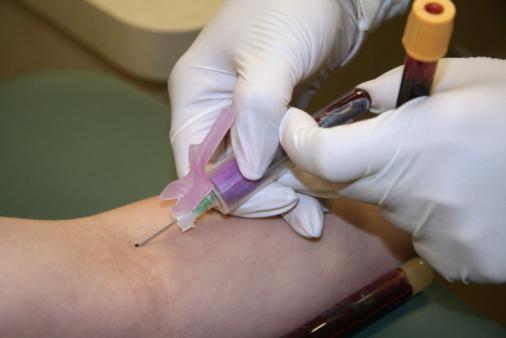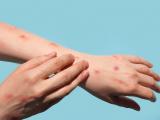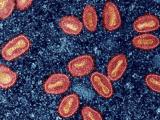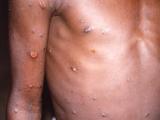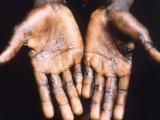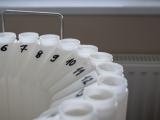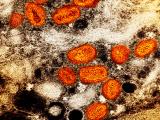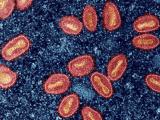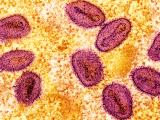Findings from two new studies that will be presented later this month at the European Congress of Clinical Microbiology and Infectious Diseases (ECCMID) in Barcelona, Spain, show that antibody levels produced by the Jynneos mpox vaccine fall to very low levels within 1 month to a year, but they remain high among adults who had previously received a smallpox vaccine.
The vaccine has been shown to be efficacious in real-world studies starting in 2022 among men who have sex with men (MSM), with few breakthrough infections and milder disease reported when breakthrough infections occur, according to an ECCMID news release on a study conducted in Sweden. Sexual contact among MSM was a major factor in spreading mpox virus (MPXV) during the large global mpox outbreak in 2022.
Low antibody levels after just 1 month
For the study in Sweden, investigators analyzed data on 100 MSM who sought care at a sexual health clinic in Stockholm. They assessed the men's blood before the first Jynneos vaccine dose, between doses, and 28 days and 3 months after the second dose for levels of mpox-neutralizing antibodies.
Twenty-three of the men had previously received a smallpox vaccine, 57 had not, and 10 were unsure. The researchers compared antibodies with 20 blood donors who had never had mpox and 20 who had contracted the disease.
They found that previous smallpox vaccination was associated with significantly higher antibody levels. Among those without prior smallpox vaccination, less than half showed any detectable neutralizing antibodies 28 days after the second vaccination, with those who did exhibit responses having a median titer of 20, compared with 40 in those who had received a smallpox vaccine.
Our results indicate a rapid decline in neutralising antibodies after two doses.
The authors say in the release, "Our results indicate a rapid decline in neutralising antibodies after two doses and are in line with other recent studies. These results, together with the continued spread of mpox in MSM populations in Europe, [have] prompted the consideration of a booster dose. Such a recommendation needs to be based on scientific evidence."
Similar findings after 1 year
The second study was conducted in the Netherlands. Researchers from Erasmus MC in Rotterdam assessed antibody levels a full year after second-dose Jynneos vaccination and found a similar difference among those who had previously received a smallpox vaccine and those who hadn't.
Of 118 Jynneos vaccine recipients, 36 returned for a 1-year follow-up visit. Among those without pre-existing immunity, 14 of 21 (67%) had undetectable levels of antibodies, and the researchers measured a 10.7-fold decrease in geometric mean titers (GMTs), a standard measurement for antibody levels, compared to 4 weeks after the second dose.
Among vaccinees with childhood smallpox vaccination, however, only 1 of 15 (7%) had undetectable antibodies after 1 year, and the GMT reduction between 4 weeks after the last vaccine dose in 2022 and the 1-year follow-up visit was 2.5-fold for those vaccinated with two Jynneos doses and 1.9-fold for those vaccinated with one dose.
It is unclear how waning antibody levels relate to protection.
The authors said in another ECCMID news release, "The first and second-generation smallpox vaccines contained replication-competent vaccinia virus. [Jynneos] is based on non-replicating virus, which may impact the strength and duration of the immune response; with the advantage of a low risk of side effects."
They add, "Regarding the potential necessity for a booster, it is premature to draw such conclusions. It is unclear how waning antibody levels relate to protection."
